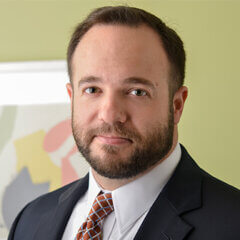By Greg Care
Non-compete clauses have been a contentious and ever-developing issue in employment generally, including for physicians and other health care providers. Non-competes, as they are commonly known, are contractually-binding promises by a worker not to work for or own a business that is engaged in essentially the same work they do for their present employer for some period of time after the employment relationship ends and in a prescribed geographic area.
As I have written on other occasions, the Federal Trade Commission (FTC) has proposed a near-total ban on non-competes nationwide and the National Labor Relations Board’s general counsel has opined that, except in limited circumstances, non-compete agreements violate the National Labor Relations Act.
In a momentous move, the Maryland General Assembly has just passed legislation (HB 1388) that would, in some cases, totally ban or at least significantly limit non-competes for physicians, health care workers, and veterinarians in Maryland. To become law, the legislation must still be signed by Governor Wes Moore or 30 days must pass without his veto. Considering the bill passed the legislature with strong bipartisan support, it is unlikely to face a veto.
As of this writing, the General Assembly has not published the enrolled bill, but my tracking of the amendments of the original bill results in the following key takeaways on what HB 1388 does:
- Starting with contracts signed on or after July 1, 2025:
- Non-competes are banned for employees licensed under the Health Occupations Article (e.g., doctors, nurse practitioners, nurses, midwives, dentists, pharmacists, psychologists, optometrists, etc.) who work in a position that “provides direct patient care” and earn “total annual compensation” of $350,000 or less.
- Non-competes are limited for employees licensed under the Health Occupations Article who work in a position that “provides direct patient care” and earn “total annual compensation” of more than $350,000. The limits are that the non-compete cannot be effective: (a) for more than one year after employment ends, or (b) in a geographical area more than 10 miles from the primary place of employment. When patients request, employers have to inform them where their former provider has begun practicing.
- While the legislation does not define “total annual compensation,” the Senate Finance Committee discussed that this would encompass only salary and not benefits.
- As noted above, the legislation addresses only Health Occupations Article-licensed employees’ contracts signed on or after July 1, 2025. The original bill called for the legislation to have retroactive effect so as to apply to existing contracts (similar to what the FTC has proposed), but that was removed by amendment to address concerns about “impairment of contracts.”
- Non-competes are banned for employees licensed as veterinary practitioners or veterinary technicians under Title 2, Subtitle 3 of the Agriculture Article, presumably for contracts signed after the legislation’s effective date of June 1, 2024. There is no compensation cap in play.
- Based on the committee voting session discussions, there is the possibility of an expanded ban in the future depending on how this legislative effort works in practice. Further, the legislation calls for study of several issues, including the effect of private equity firms on the health care market in the State.
This is an important step forward in the reform of non-compete clauses that all too often have a deleterious effect on our health care workforce and the public. While it is not perfect or immediate, it is certainly an improvement that, if signed (or not vetoed) by the Governor, should make a real difference for a great many providers and patients. All the same, I predict that there will be fights ahead about how this legislation is interpreted.
If you have questions regarding non-competes in your situation, please contact us today to see if we can assist with your particular circumstances.
* Content on this website, including blog articles, are proprietary and copyright protected. If you wish to use all or part of a blog article, we request that you properly attribute the work and include a link to the Brown, Goldstein & Levy webpage on which it appears.
